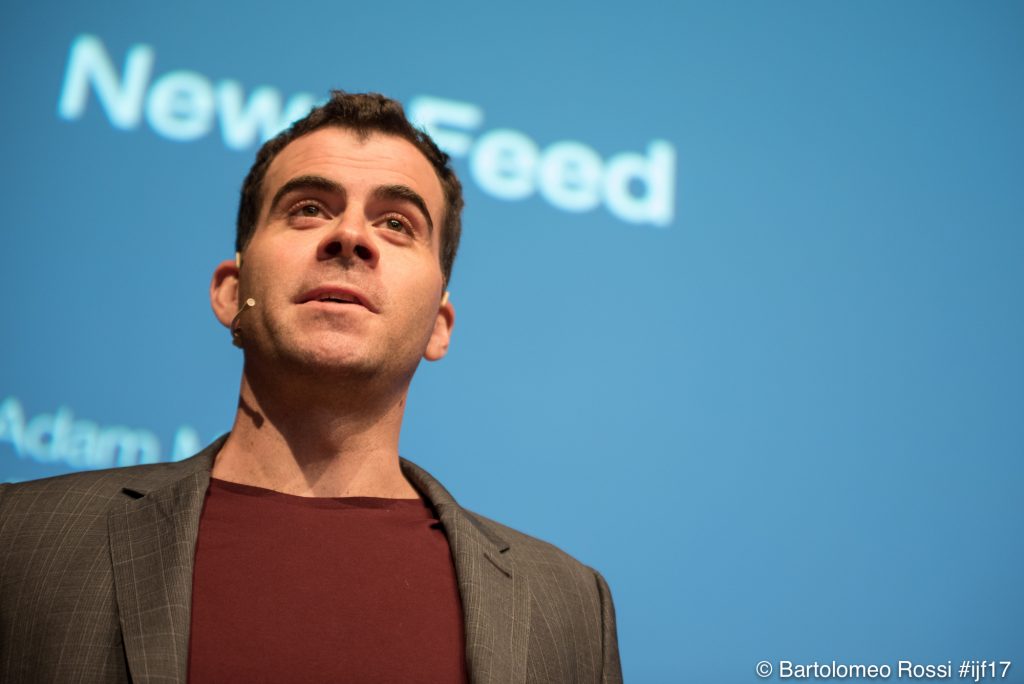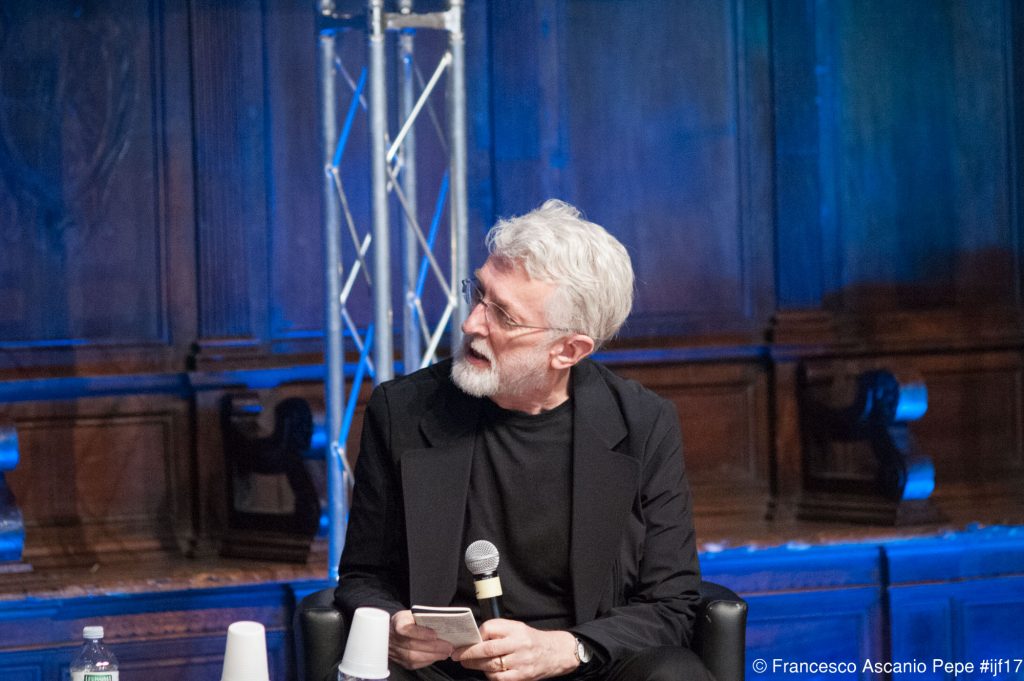On 7 April Adam Mosseri, Facebook VP and head of the News Feed team, presented his own views on how to manage news in this social media age while at the International Journalism Festival. He began his presentation on how to understand Facebook algorithms and how to improve the visibility and the logic of Facebook feeds.
“News are important as they are built,” Mosseri said while talking about the revolution in each era of communication, focusing first on the rise of TV popularity and its impact on the way people consumed information. In the 70s TV appeared to already be old, but today ‘we can have hundreds of channels.’ In addition to traditional television, audiences can consume “films, music, books and also news”.
The new way of producing news also makes it possible for all of us to consume it in a different way: through the use of mobile phones ‘we can check thousands of [reading] texts’ by simply checking our screens, thus changing the methods of mass information. But what can Facebook do with these changes?
Mosseri explained that his company is handling the change with three different approaches due to the working mechanisms of the social media platform.
The VP dedicated part of his speech, titled ‘WTF is an algorithm?’, to explain the reasoning behind the overall technical structure of Facebook. An algorithm is a formula or set of steps used to resolve particular problems and Facebook is using it to detect their users’ favourite restaurants, monitor their interactions, hobbies and, also, their favourite types of media. And this algorithm is responsible for how we read news or how we receive information today.
This algorithm determines how important a piece of news, a profile, a friend, or a publication is to us. But when Facebook ‘first launched the platform, the news feed didn’t exist,’ explained Mosseri. He believes that the way Facebook works now allows people to make smarter decisions, and to better know what they want.
Educational plans
“We’re looking for ways to have journalist make money for what they do.”
Which is why Facebook recently launched its Journalism Project. The social media platform has also got plans to start an educational programme with the goal to make people improve their way of sharing information on Facebook. Mosseri explained the pointers the platform is looking for: story format, local news and the possibility to monetize the product.
Jeff Jarvis plays
Mosseri then gave the floor to Jeff Jarvis, who focused his section of the panel on technology, fake news and ethics.
“One of the most important things that Facebook can do is to not allow pages to make money from posting on Facebook.”
Jarvis defined fake news as one of the worst problems that journalism has to face today, and discussed the role Facebook holds in avoiding an overflow of incorrect fact-sharing among their users. He suggested that the platform should do ‘a better job’ when it comes to monitoring possible fabricated news articles.
Another way to contrast bad information and a way to check it is through the use of algorithms: Facebook is now working on new ways to give ‘more context to the people about what they’re reading’.
The news veteran wanted to learn more about the social platform’s ethics and its position when it comes to managing information. Jarvis asked whether Mosseri thought it at least partially dangerous to let Facebook be not only a content platform, but also an editor. Mosseri explained that they’re moving between the right of people to express themselves and also their responsability on news.
Mosseri also admitted to Facebook closely monitoring certain types of content that the platform doesn not allow to be posted due to its internal guidelines: posts containing hate speech, images and/or mentions of violence or bullying are automatically moved to the trash on a daily basis. He recognised that the demarcation line between content management and censorship is very thin, but also stated that the general approach was to recognise the users’ right to free expression.
Mosseri recognized that his team does not want to have fake news on their platform: it’s bad for their public image, and for business also, and, more importantly, it is bad for the people. But they’re trying to figure out how to manage it.

